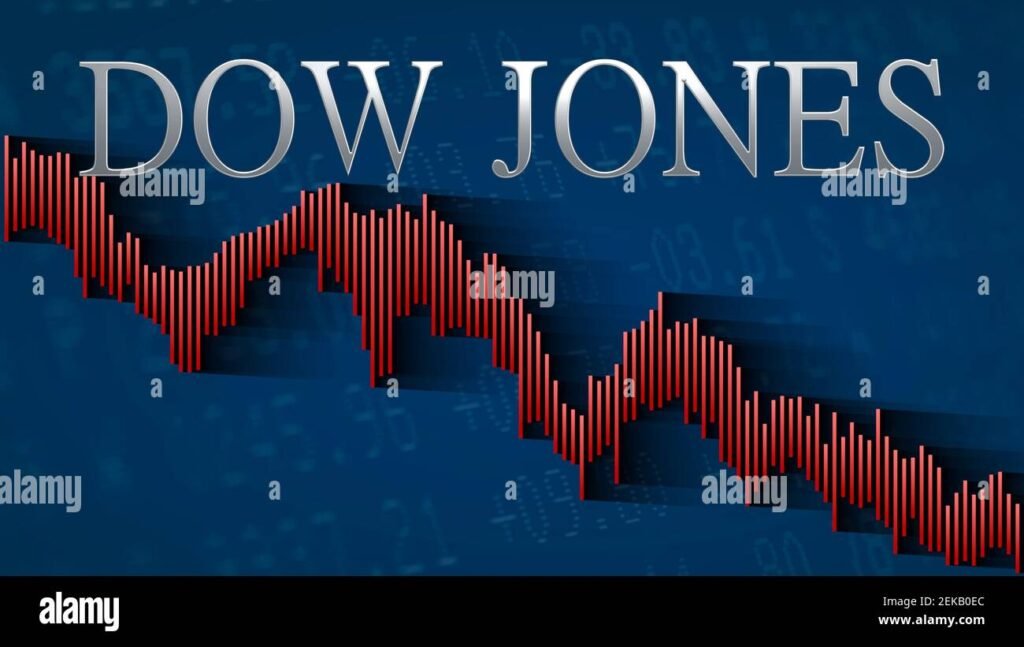When it comes to the financial world, keeping track of the Dow Jones Industrial Average is crucial for investors and traders alike. The Dow Jones Industrial Average, often referred to as the Dow, is a widely followed stock market index that measures the performance of 30 large, publicly-owned companies trading on the New York Stock Exchange and the NASDAQ.
Dow Jones Overview
Introduction to Dow Jones Industrial Average:
The Dow Jones Industrial Average, established in 1896 by Charles Dow and Edward Jones, is one of the oldest and most commonly cited stock market indices. It provides a snapshot of how the stock market as a whole is performing by tracking the stock prices of leading companies across various sectors.
Understanding the Index and its Significance:
How Dow Jones Affects the Stock Market: The movements of the Dow Jones Industrial Average can have a significant impact on the broader stock market. Investors and analysts closely watch the fluctuations in the Dow to gauge market sentiment, anticipate future trends, and make informed investment decisions.
Latest Stock Price Updates
Keeping abreast of the latest stock price updates is essential for investors navigating the financial markets. Whether you’re monitoring individual stocks or market indices like the Dow Jones Industrial Average, staying informed ensures you can make well-informed decisions regarding your investments.
Real-time Stock Price Data
Real-time stock price data provides investors with up-to-the-minute information on market movements, allowing them to react swiftly to changing conditions. By accessing real-time data feeds, traders can track stock prices, analyze trends, and execute trades promptly to capitalize on market opportunities.
Factors Influencing Stock Prices
Stock prices are influenced by a multitude of factors, including company earnings reports, economic indicators, geopolitical events, and market sentiment. Understanding these factors is crucial for investors seeking to predict stock price movements and make informed investment decisions based on a comprehensive analysis of the market environment.
Interpreting Dow Jones Index Changes
Interpreting changes in the Dow Jones Industrial Average requires a deep understanding of the companies included in the index and the industries they represent. Analysts closely monitor these changes to gauge market sentiment, assess overall market performance, and identify potential investment opportunities based on shifts in the index composition.
Market News and Analysis
Breaking News in the Stock Market
Staying updated with breaking news in the stock market is essential for investors looking to make informed decisions. Breaking news can include company announcements, economic reports, and geopolitical events that have the potential to impact stock prices and market indices like the Dow Jones Industrial Average. By following breaking news, investors can stay ahead of market trends and adjust their investment strategies accordingly.
Professional Analyst Insights
Professional analyst insights provide valuable perspectives on market trends, investment opportunities, and potential risks. Analysts utilize their expertise to analyze financial data, economic indicators, and industry developments to offer informed insights to investors. These insights can help investors navigate the complexities of the stock market and make strategic investment decisions based on thorough analysis and research.
Economic Indicators and Market Trends
Economic indicators and market trends play a crucial role in shaping investor sentiment and market movements. Understanding key economic indicators, such as unemployment rates, GDP growth, and inflation levels, can help investors anticipate market trends and adjust their investment portfolios accordingly. By staying informed about economic indicators and market trends, investors can make well-informed decisions to capitalize on opportunities and mitigate risks in the financial markets.
Future Forecast and Trading Strategies
As investors and traders look ahead, having insights into future projections and trends is essential for making informed decisions in the stock market. Understanding the potential market movements and trends can help investors anticipate opportunities and risks to adjust their trading strategies accordingly.
Market Projections and Future Trends
Market projections and future trends provide valuable guidance for investors seeking to navigate the dynamic landscape of the financial markets. By analyzing historical data, economic indicators, and emerging market trends, investors can gain a better understanding of where the market might be headed in the future. This insight is vital for formulating effective investment strategies and capitalizing on potential opportunities.
ETFs and Alternative Trading Options
Exchange-Traded Funds (ETFs) offer investors alternative trading options to traditional stock investments. ETFs provide exposure to diverse asset classes, sectors, and market indices such as the S&P 500 and Nasdaq Composite. By investing in ETFs, traders can diversify their portfolios and mitigate risk while still participating in the market’s overall growth.
Strategies for Trading Dow Jones Stocks
Developing effective strategies for trading Dow Jones stocks requires a combination of fundamental analysis, technical analysis, and market insights. Traders can employ various approaches, such as trend following, momentum trading, and value investing, to capitalize on price movements in individual Dow Jones components. By carefully crafting trading strategies based on thorough research and analysis, investors can optimize their trading performance and achieve their financial goals.
